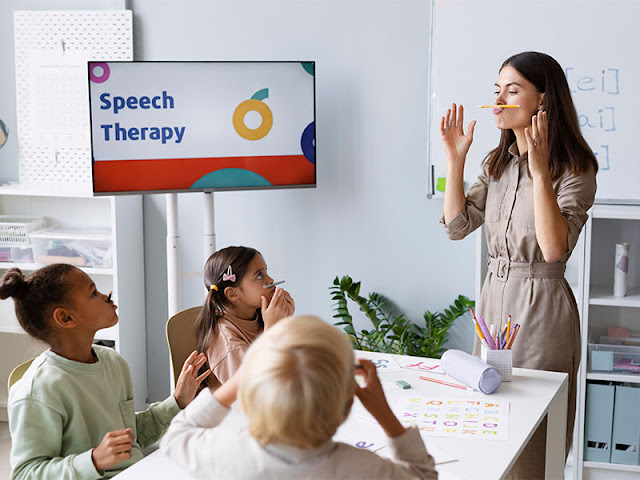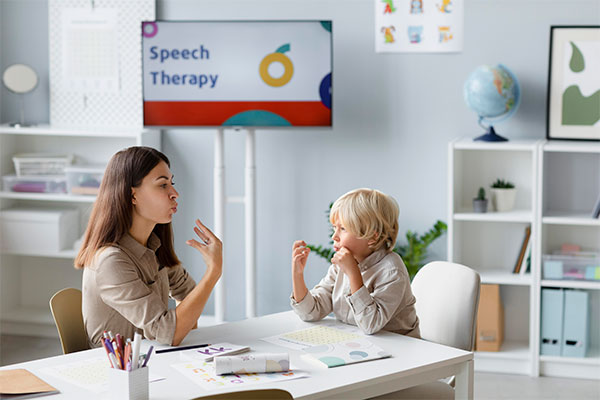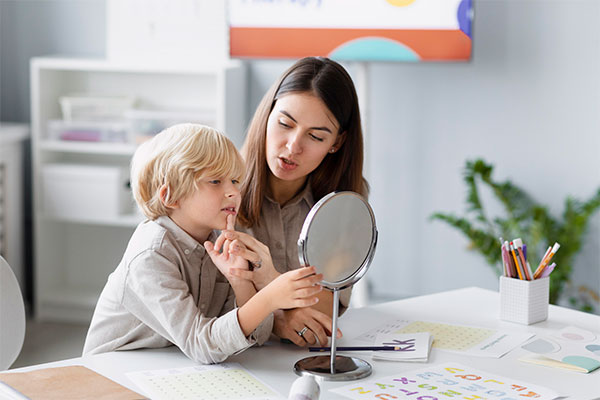In the intricate tapestry of a child's development, the ability to communicate is a fundamental thread. For some children, however, the journey towards expressive and clear speech can be a challenge. This is where speech therapy plays a pivotal role. Beyond the traditional therapeutic sessions, incorporating engaging and targeted activities at home can significantly enhance a child's speech development. In this article, we explore a diverse range of activities for speech therapy for kids, ensuring a fun and effective approach to fostering language skills.
1. Storytelling Adventures:
Embarking on storytelling adventures is a delightful way to stimulate a child's imagination while working on their speech development. Choose books with vibrant illustrations and captivating stories. Encourage the child to narrate the story, mimicking different characters and expressing emotions. This not only enhances speech clarity but also promotes language comprehension and creative expression.
2. Articulation Through Play:
Integrating speech therapy into playtime activities can be both enjoyable and educational. Select games that focus on specific speech sounds, such as "Simon Says" for sibilant sounds or "I Spy" for initial sounds. These games not only make speech therapy more engaging but also provide a natural context for practicing target sounds in a stress-free environment.
3. Musical Melodies for Phonological Awareness:
Music has a universal appeal, making it a powerful tool for speech therapy. Create a musical environment by singing nursery rhymes, songs with repetitive sounds, or rhyming tunes. Clapping or tapping to the rhythm of the words helps children develop phonological awareness – a crucial skill for speech and language development.
4. Puzzle Power:
Puzzles are excellent for promoting cognitive and speech development simultaneously. Choose puzzles with pictures or words, and engage the child in conversation about the pieces they are connecting. This activity encourages verbal expression, vocabulary expansion, and the development of essential cognitive skills. Invest in your kids' future with an expert-run personality development course – a roadmap to self-discovery, improved interpersonal skills, and a confident, charismatic presence. Unleash the best version of yourself and thrive in every sphere of life.
5. Tongue Twister Challenges:
Tongue twisters are not just a playful linguistic challenge; they are a fantastic tool for enhancing speech clarity and articulation. Start with simple tongue twisters and gradually progress to more complex ones as the child becomes more comfortable. This activity adds an element of fun while effectively targeting speech difficulties.
6. Interactive Technology Apps:
In the digital age, there are numerous speech therapy apps designed specifically for children. These apps often use interactive games, engaging visuals, and rewards to make speech exercises enjoyable. Whether focusing on articulation, vocabulary, or sentence structure, these apps can be valuable additions to a child's speech therapy routine.
Visit: healthy lifestyle tips
7. Daily Routine Narratives:
Incorporate speech therapy seamlessly into daily routines by encouraging the child to narrate their activities. Whether it's describing their breakfast, recounting their day at school, or explaining their bedtime routine, these narratives provide ample opportunities for speech practice in a natural context.
8. Role-Playing Scenarios:
Engage in role-playing scenarios that mimic real-life situations. This could include playing "store," "doctor," or "school." Encourage the child to use appropriate language, ask questions, and engage in dialogue. Role-playing not only enhances speech skills but also nurtures social communication and pragmatic language development.
9. Speech Sound Scavenger Hunt:
Transform speech therapy into an exciting scavenger hunt. Create a list of items or objects that contain the target speech sound. The child's mission is to find and name each item, providing an enjoyable way to practice specific sounds while reinforcing vocabulary. Elevate your kids' personal and professional presence with a dynamic course for personality development for kids. From impactful communication to polished etiquette, embark on a transformative experience that empowers your kid to stand out and succeed.
10. Mirror, Mirror on the Wall:
Utilize a mirror as a valuable tool in speech therapy. Children can watch their own facial movements and tongue positioning as they practice specific sounds. This visual feedback enhances self-awareness and helps in refining articulation.
Visit: why puzzles for kids
Conclusion:
In the realm of childhood development, speech therapy is a vital component that can shape a child's communication skills and overall confidence. Incorporating engaging activities at home not only complements traditional therapy but also makes the learning process enjoyable. From storytelling adventures to speech sound scavenger hunts, these activities provide a diverse and effective approach to speech therapy for kids. Embrace the joy of learning as you embark on these activities for speech therapy for kids, unlocking the full potential of your child's verbal expression.



Comments
Post a Comment